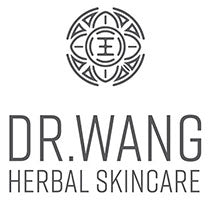Traditional Chinese Medicine & Herbs for Rosacea Treatment
Rosacea is a common skin disorder affecting 7 million Americans. People with rosacea often have fair skin, and the disease usually first appears when people reach their 40’s. Initially, they present with a reddish complexion of the face. Over time, they can develop small broken blood vessels on their cheeks and nose. As the disease progresses, one can develop papules and even pustules on the face. Aggravating factors include intense sun exposure, alcohol consumption, emotional stress, drinking hot beverages and eating spicy food.
In Traditional Chinese Medicine, rosacea is the result of an imbalance in the body. When the body is healthy it circulates blood and energy (called qi) freely. When you experience an illness, it is the result of blood or qi blockages. As it relates to rosacea, Traditional Chinese Medicine refers to this as a ‘heat condition.’ This means that stagnant heat is trapped in the lung system (which is the system that controls the health of the skin according to Traditional Chinese Medicine) or the stomach and spleen systems. The heat rises to the face which is what causes the redness and inflammation associated with rosacea.
There are three methods of which practitioners of Traditional Chinese Medicine treat rosacea. Acupuncture, herbs, and diet.

Acupuncture
Acupuncture is one of the best ways to effectively clear this “heat” to reduce symptoms of rosacea such as redness, flushing, and irritation. “Acupuncture clears heat from the lungs and stomach to reduce flushing and heat rising to the face,” according to Diana Hermann, a board-certified practitioner in Chinese herbal medicine and acupuncture who practices at Fort Collins Clinic in Colorado. She adds that “a pooling of heat in the face and head inhibits proper circulation throughout the rest of the body.”
And there is research to back this up. In one study, after a diagnosis of rosacea was made by a dermatologist, a patient underwent acupuncture treatments for a half-hour 3 times per week. The patient experienced significant improvements in the region around the nose after 3 sessions of acupuncture treatment within the first week and reported that there was no relapse for 6 months after acupuncture treatment. “The perfusion of blood flow was redistributed during and after acupuncture treatment according to laser Doppler measurements. The patient's DLQI score substantially improved. The patient was generally satisfied with the acupuncture treatment.”

Herbs
Along with acupuncture, Traditional Chinese Medicine also recommends herbal treatments to heal rosacea. Each herb used in TCM is classified by its nature, taste and the particular organ it enters. Gardenia, for example, is categorized as a "cold" herb and is typically used to treat heat disorders like eczema. On the opposite end of the spectrum, cinnamon or dried ginger are both "hot" herbs and are used to treat “cold” illnesses like stiff joints that are cold to touch or stomach pain. Many of the herbs that are used internally in Traditional Chinese Medicine can also be applied topically. These topical treatments also help to clear “heat” while also healing and soothing the irritation.
Comfrey is an herb that is typically used in Traditional Chinese Medicine to help cure rosacea. This perennial herb is loaded with nutrients that promote healing of the skin. One of the most powerful in comfrey is allantoin. Allantoin has been used in over-the-counter treatments to help hydrate and soothe irritation. This makes it a great choice when it comes to healing rosacea with herbs.
Dry skin is often associated with rosacea as well. In Traditional Chinese Medicine it is believed that this is caused by a lack of blood flow that helps nourish the skin. Therefore herbs that nourish blood and encourage movement are prescribed to help rehydrate the skin. Some of these herbs include Chinese Angelica, Wolfberry fruit, Fleece flower root, and Chinese foxglove root.

Diet
As we mentioned previously, in Traditional Chinese Medicine rosacea is caused by stagnant heat in the lung and stomach. A change in diet can also help to alleviate the symptoms of rosacea. If you are experiencing a flare-up, try eating a bland diet like whole grains, green veggies, and fruits. Also include more “cold” foods like mung beans, cucumbers, beets, beet tops, dandelion greens, mulberries, lyceum fruits, and Chinese prunes. Be sure you’re drinking enough cold water, about 60 ounces per day.
You should also be sure to avoid eating too much “hot” food. Both temperature-wise and in regards to spice. This includes anything that is fried and oily foods. This also includes wine and other alcohols as it can cause the skin to flush.
Bottomline
Using a combination of acupuncture, herbs, and a proper diet can help to keep symptoms of rosacea at bay.
Steven Wang, MD and Gui Wang, LAc have been working together for over 20 years to provide potent, herbal remedies for spas and individuals around the world. The father-son duo mixes Traditional Chinese Medicine (TCM) with cutting edge scientific advances with the aim of bringing relief, comfort, and happiness to our customers. Our products are the result of decades of dedicated research.
We believe that utilizing both modern Western medicine and time-honored Eastern medicine allows us to provide unique skincare solutions. To learn more, read what experts from The New York Times, Allure, Reader’s Digest, and more have to say about our revolutionary products.




